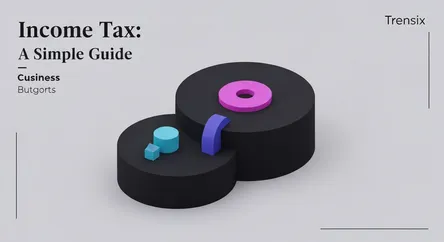Business
Income Tax: A Simple Guide

Learn what income tax is, why it's a key part of government funding, and how it impacts your personal finances and economic decisions.
What is it?
Income tax is a direct tax that a government levies on the financial income of individuals and businesses. It serves as a primary source of state revenue, used to fund public services like infrastructure, healthcare, national defense, and education. Tax systems vary globally; they can be progressive, meaning higher earners pay a larger percentage of their income, or flat, where a single rate applies to all. This revenue is essential for a country's operations and the welfare of its citizens, making it a cornerstone of modern fiscal policy.
Why is it trending?
Income tax is a perpetually relevant topic, especially during tax filing seasons. Current trends are driven by ongoing political debates about tax reform, fairness, and economic stimulus. Discussions around adjusting tax brackets for inflation, the tax implications of the growing gig economy, and new regulations for digital assets keep the subject in the news. Furthermore, global conversations about establishing a minimum corporate tax rate to combat tax avoidance by multinational corporations have brought renewed attention to how tax systems function in an interconnected world.
How does it affect people?
Income tax directly reduces an individual's disposable income, influencing their capacity to spend, save, and invest. It requires most working adults and businesses to maintain financial records and file an annual tax return, a process that can be complex. Understanding tax laws, deductions, and credits is crucial for minimizing liability and maximizing financial well-being. Tax policy also shapes behavior, incentivizing activities like saving for retirement through tax-advantaged accounts or making charitable donations, thereby affecting both personal financial planning and the broader economy.